ICP-MS Courses
Two courses (with limited enrollment) provide hands-on experience with ICP-MS, in addition to other inorganic mass spectrometric techniques. Brief descriptions and syllabi are included below. If interested, please contact Dr. Miller for more information: nrmiller@jsg.utexas.edu.
GEO 392F/343Q – Fundamentals and Applications of ICP-MS (Fall)
The value of compositional data (isotopic and elemental) to scientific inquiry is indisputable. Such data form the relationships from which trends and processes emerge, enabling prediction and advancement of hypotheses. Capable scientists need analytical education in terms of instrumental methods, data generation and evaluation, and knowledge of scales of measurement and natural variability. Inductively coupled plasma mass spectrometry (ICP-MS) is widely regarded as the premier technique for trace, minor and major element measurement, and has wide applications in almost every analytical field. This course covers fundamentals of the technique and explores, through hands-on labs, applications and capabilities of ICP-MS. Lecture/lab contents are approximately 50:50 with the lab component emphasized in the second half of the course. It is the hands-on experience component of this course, in particular, that facilitates understanding of ICP-MS capabilities.
Prerequisites: Graduate standing in geological sciences or graduate standing and consent of instructor. Working knowledge of MS Excel, including manipulation of rows and columns of data, application of basic algebraic functions to derive statistics, sorting and filtering of data.
Links:
Fall 2023 Class Projects
- Method development of analysis of trace elements in Cave Peak Molybdenite using LA-ICP-MS (will be posted after Spring 2024)
- Secondary determination of trace elements in detrital zircons by LA-ICP-MS
- Evaluating the metallic profile of electrolytes and reaction mixture in heterogeneous catalysis
- Trace element regression as a function of luminosity in LA-ICP-MS maps of soil carbonate nodules to develop a quantitative soil CO2 proxy
- Developing an LA-ICP-MS method for analysis of Yosemite National Park potassium feldspar megacrysts
- Comparison of EPA Method 200.8 and Collision/Reaction Cells: water quality analysis of Austin drinking water
Fall 2022 Class Projects
- Development of an ICP-MS technique to quantify ancient Maya environmental impacts
- Developing methodology for comparing vadose and epikarst impacts on speleothem trace metal fractionation in Cave Without a Name, Texas
- Trace element mapping by LA-ICP-MS in ultrahigh-pressure diamond-bearing garnet porphyroblasts from migmatitic pelitic gneiss, central Rhodope Mountains, Bulgaria
- The effects of urbanization on a travertine using LA-ICP-MS
- Exploring diagenesis and annual variation in elemental abundance in Jurassic dinosaur teeth
- Developing a methodology for the chemical characterization of chert from northern Belize
- Method for differentiating ashfall events using trace element analysis of volcanic glass shards inferred from LA-ICP-MS
Fall 2021 Class Projects
- Tree core analysis by solution-ICP-MS and LA-ICP-MS
- Discerning super-eruption magmatic conditions by zircon microchemistry
- Electrocatalyst and electrolyte compositions by solution-ICP-MS
Previous GEO 392F:343Q Class Projects – Fundamentals and Applications of ICP
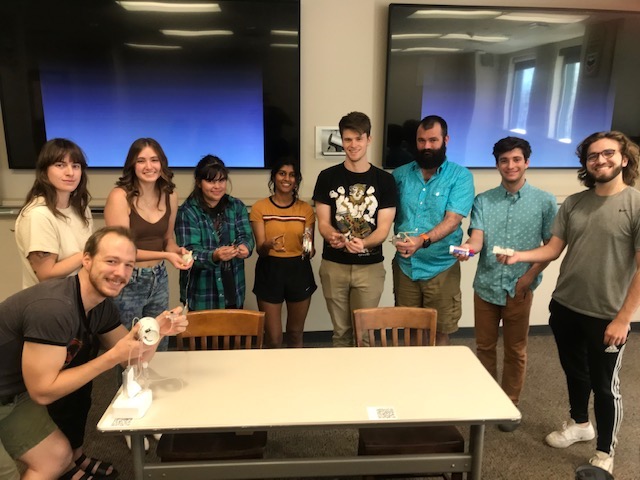 |
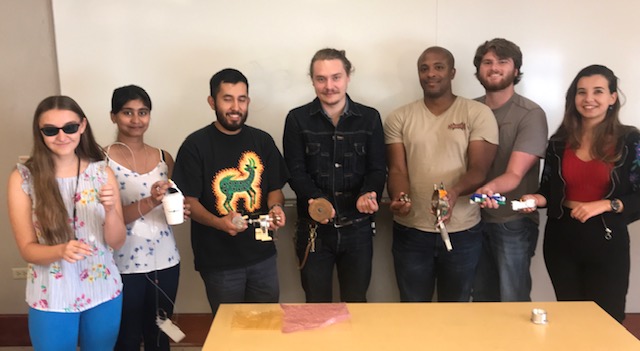 |
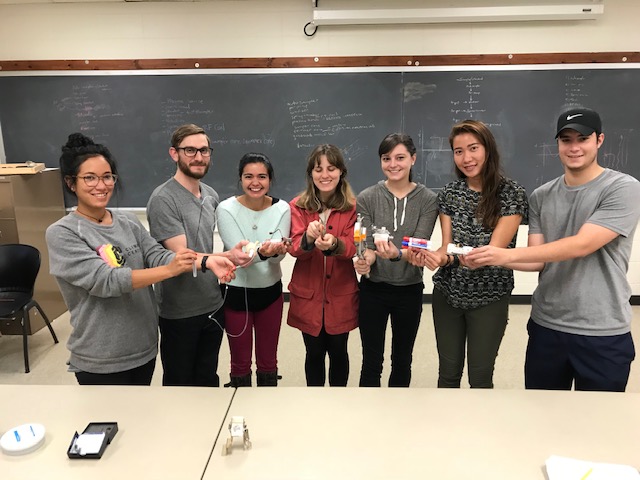 |
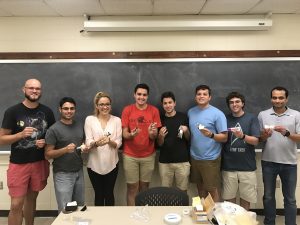 |
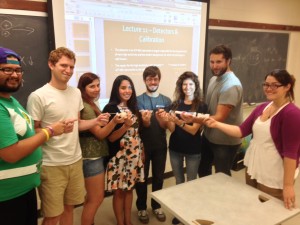 |
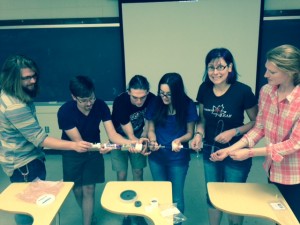 |
GEO 391 – Geochemical Problem Solving with Atoms and Ions (Spring)
Mass spectrometers are essentially analytical balances that operate at molecular and atomic levels. Compositional data (both isotopic and elemental) provided by mass spectrometric techniques are invaluable to many lines of scientific inquiry. Many types of mass spectrometers have been developed to suit a wide range of applications (>10 in the Jackson School of Geosciences!), but all involve the conversion of sample molecules into charged particles (ions) that are then measured according to their mass-to-charge ratio to provide specific information about chemical identity and abundance. This course provides an introduction to inorganic mass spectrometry methods and their applications to the Earth sciences. Five key modalities are surveyed (TIMS, ICP-MS, LA-ICP-MS, MC-ICP-MS, and IRMS) in lecture, with hands-on experience provided in weekly labs. Knowledge and skills developed in this course are intended to provide an understanding of how mass spectrometers work, how these techniques are used in geoscience research, and what is necessary to generate and critically evaluate high-quality data.
Prerequisites: Graduate standing in geological sciences, upper division undergraduate standing in geological sciences and consent of instructor, or graduate standing in another field and consent of instructor.
Syllabus: GEO 391-371T S’16 Syllabus
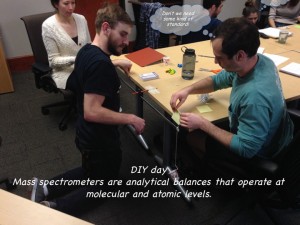 |
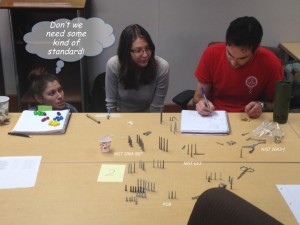 |

